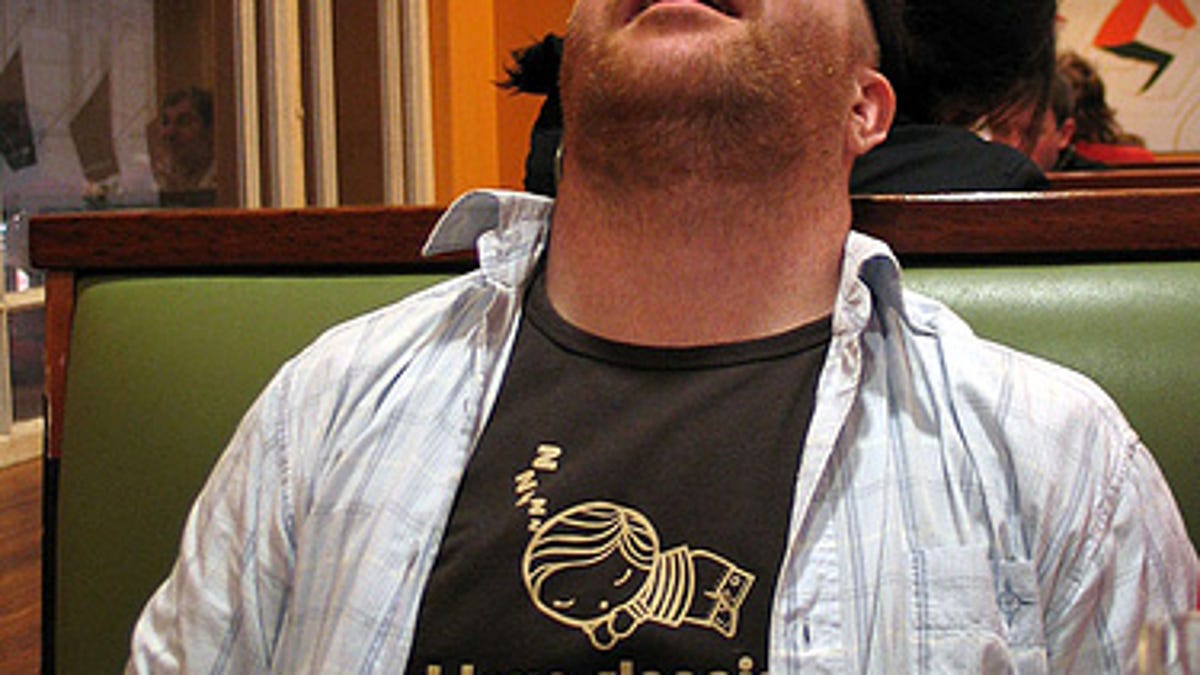Tired of snoring? All you need is heat
Scientists find that radiofrequency ablation, a minimally invasive procedure using heat to shrink soft palate tissue, minimizes snoring for several years.

If we're honest, most of us are either snorers or sleeping next to one.
On a recent camping trip, I woke up in the middle of the night thinking we had a bear grunting just outside our tent; heart racing, I turned on my head lamp to investigate. Turns out my husband, who rarely snores, sounds like a bear when he does. I tossed and turned for an hour until finally shaking him awake to shut him up.
For couples dealing with this kind of sleep disruption on a regular basis, it's probably not a stretch to say that a minimally invasive treatment that stops or significantly reduces snoring could save relationships.
The procedure, called radiofrequency ablation, or RFA, uses heat to shrink soft palate tissue. Because it is minimally invasive, performed with imaging from X-rays or CT scans, it has become a widespread treatment in the past decade of not only primary snoring (snoring without sleep apnea) but also cancer, cardiac arrhythmia, arthritis, and even varicose veins.
Unlike previously used low-frequency AC or DC, RF current does not directly stimulate nerves or muscle, so does not require general anesthesia. Still, long-term efficacy in primary snorers had yet to be studied thoroughly, according to researchers of a new study.
In a paper presented last weekend at the American Academy of Otolaryngology-Head and Neck Surgery Foundation's annual meeting in San Diego, researchers studied RFA as a treatment for 60 primary snorers over a three-year period. After two treatments, snoring became less severe, and 76 percent of patients reported satisfaction with the treatment and its effects at a three-year follow-up, according to the study.
Researchers say that primary snoring could be an early predictor for people who later develop obstructive sleep apnea. Unlike apnea, for which there are several surgeries, no widely accepted gold standard treatment has been developed to treat primary snoring.
Long-term research results surrounding radiofrequency surgery on primary snorers have been limited, the researchers say. As a result, this study could guide physicians and patients in choosing effective treatment.

